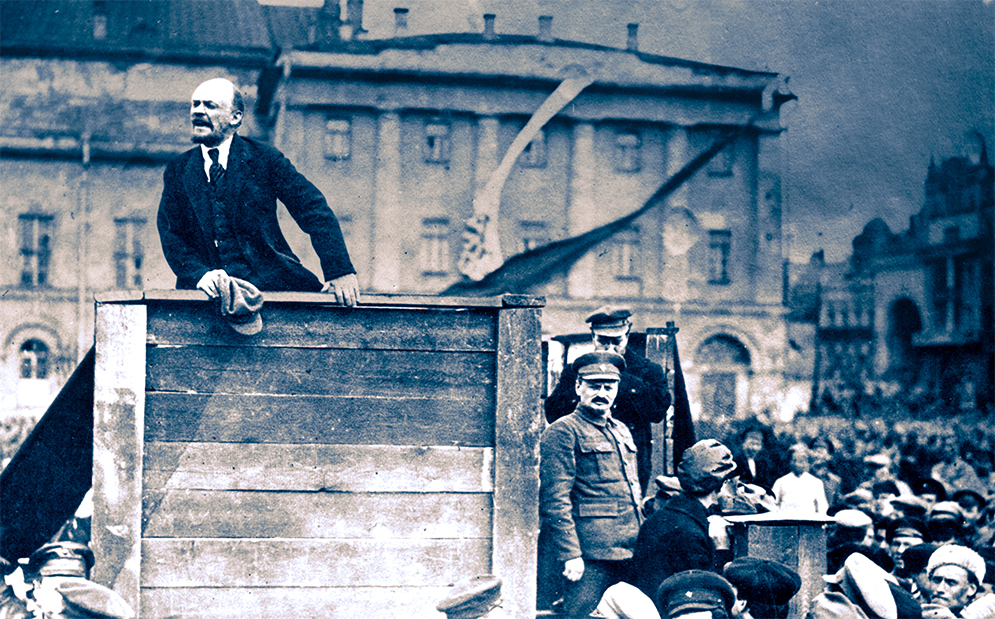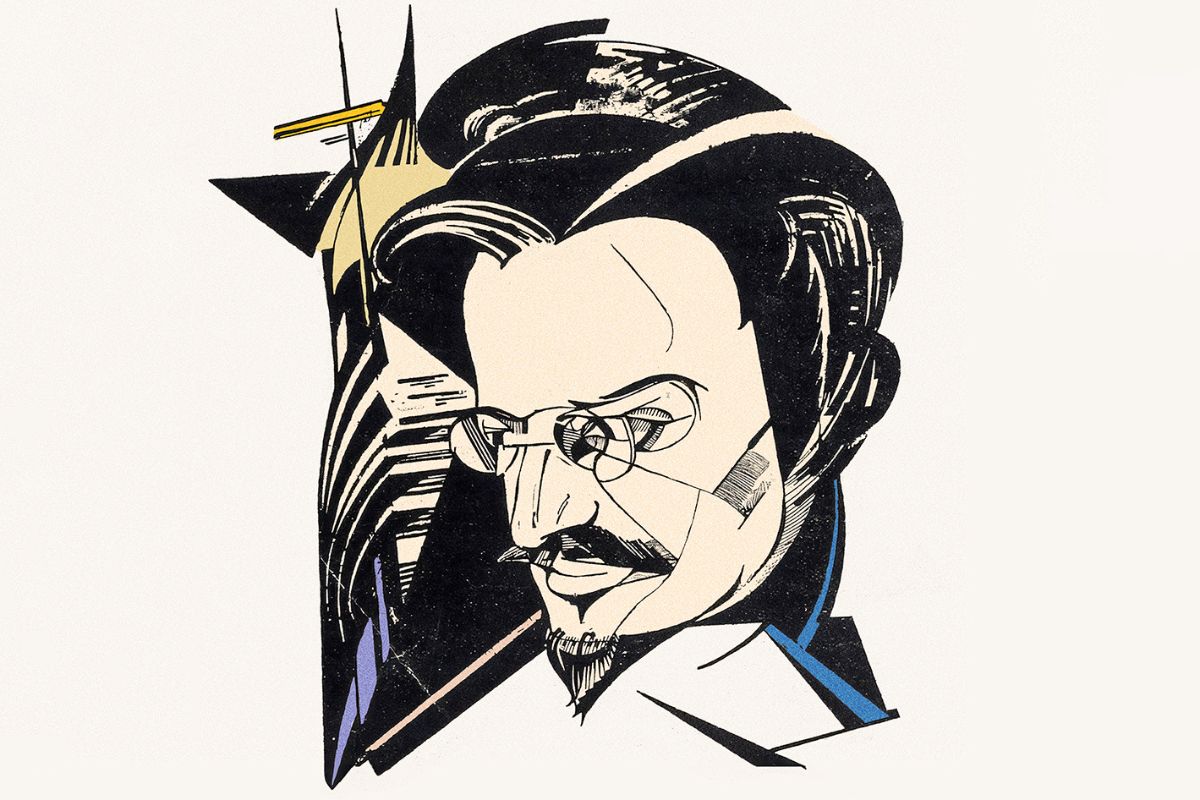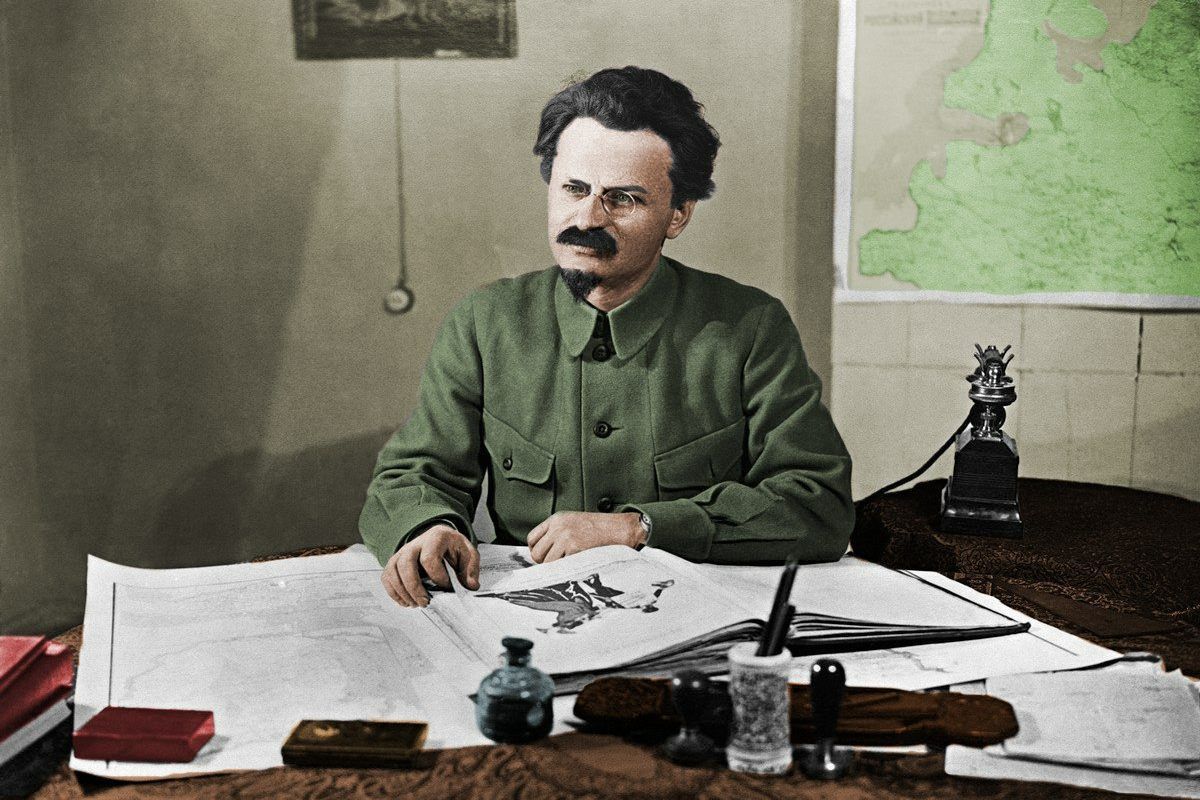Trotsky’s
essay, Trade Unions in the Epoch of Imperialist Decay, can be found at www.trotsky.net 
Trotsky’s
pamphlet should be read in its entirety. Its central theme can be summarised by
the following quotes:
“There is one common feature in the development, or
more correctly the degeneration, of modern trade union organizations in the
entire world: it is their drawing closely to and growing together with the
state power. This process is equally
characteristic of the neutral, the Social-Democratic, the Communist and
“anarchist” trade unions. This fact alone shows that the tendency towards
“growing together” is intrinsic not in this or that doctrine as such but
derives from social conditions common for all unions.”…“The
neutrality of the trade unions is completely and irretrievably a thing of the
past, gone together with the free bourgeois democracy.”
Matt Wells examines how this theses applies to trade unions
today
Marxism
is a not a moral code and is more than a set of ideas. It is a method that, if
applied correctly to the concrete situation, acts as a compass for the movement
towards the transformation of society by the working class in the interests of
humanity as a whole. Anyone can use a compass but it is still necessary to
decide whether to continue heading north or to change direction.
It
is only the working class that can overthrow capitalism and reconstitute
society on socialist lines. The trade unions, for Marxists, are an expression
of the organised working class. This is why the unions are a key consideration
in the perspectives for changing society.
| Buy the book from the WellRed Bookshop |
Trotsky’s
short article, though unfinished, contains some vital lessons for the class conscious
workers and youth. It was taken from notes found on Trotsky’s desk and was
never finished due to his tragic death at the hands of one of Stalin’s thugs.
The ideas it contains of course were a threat. This was the reason for Stalin’s
pursuit of Trotsky, as his ideas represent the application of Marxism to the
concrete circumstances of the organised working class, rather than the
grotesque distortions of Stalinism or the misconceptions of reformism.
Although
written in 1940, it is particularly relevant today. This is in spite of the
trend identified by Trotsky having not been fully borne out. Trotsky did not
have a crystal ball, just the method of Marxism which, when applied to the
historical context, led him to draw a conclusion that trade unions were tending
towards merging with state power. Major fascist movements and war across Europe
shaped this view. Trotsky did not foresee the strengthening of Stalinism or the
long post-War boom experienced in the advanced capitalist countries after the
Second World War.
However
Trotsky’s article sheds light on how, under the immense pressure of bourgeois
i.e. capitalist society, the trade unions become obstacles on the road to
workers’ power. Like the British Labour Party they are used by the ruling class
to marshall the working class, to present their mounting an effective defence
of previous gains. Although the unions are primarily defensive organisations,
it is only through defending these gains collectively and extending them, that
workers become aware of their power.
Well,
if our own organisations, the unions, can be used against us in this way, how
can we defend ourselves, still less change society? It is easy to see why
people would turn away in disgust in seeing the results – the corrupt, degenerate
bureaucracy selling the members down the river in exchange for the relative
wealth and comfort of their positions and the spin-offs, lordships, knighthoods
and so on.
But
as Trotsky quite rightly puts it, ‘we cannot select the arena and the conditions
for our activity to suit our own likes and dislikes’. This applies equally well
to the Labour Party, and Trotsky goes into more detail in his ‘Writings on
Britain’, which are essential reading and very accessible.
The
unions may well be led by people fitting the description above. In recent times
in Britain members of PCS, the civil service union, will remember Barry
Reamsbottom and in AEEU (now Amicus-UNITE) his chum Sir Ken Jackson. These two
were favourites of Tony Blair and it was not hard to see why. They had what
seemed like an iron grip on the unions for years. If they couldn’t get away
with a sweetheart deal with management, then they would take the line of least
resistance. Even many activists felt that there could never be any change. But
they were swept away by members at the ballot box. This was not spontaneous. It
took years of struggle by those committed to the idea of a union that would be
worthy of its name, a union that advances the interests of its members.
In
PCS Reamsbottom even tried to depose his successor Mark Serwotka, proclaiming
himself as the saviour of the union from the ‘extreme left’. Having chosen not to stand in the election, Reamsbottom
had signed an undertaking to leave with an extremely generous severance
package. Serwotka was elected by the membership and even a high court judge found
in his favour! It is no surprise that since the defeat of the right in PCS, the
union has grown.
Over
the past year, we have seen how the leaders of the large unions, UNISON, GMB and
UNITE show how ‘reliable and indispensable they are’ to the representatives of capital
in the New Labour government. While sabre-rattling in the conference hall, they
showed their true colours in lining up behind Gordon Brown to ensure a
non-contest in the Labour leadership campaign when the alternative candidate,
John McDonnell was more in tune with the vast majority of their membership.
Opinion polls confirmed this. Of course they hope that some crumbs will be
thrown their way, in order that they can justify their position to the members,
who after all pay their wages. In the current climate this is increasingly
unlikely and they are in effect acting as their own grave-diggers in this
sense, they will either have to express the will of the members who want action
or be replaced by those who will.
This
analysis is to be borne out inevitably as many of the leaders who have moved to
the right, if not in words, but in deeds, will be swept away by members who,
through their own painful experience of working conditions, pay and pensions
being eroded, learn that a fighting leadership is required. The strike ballot
in UNISON local government over a below inflation pay ‘award’ could not be
avoided last year due to the pressure from the rank and file. But when it came
to a simple majority in favour, the bureaucracy deemed it insufficient to call
action. 2 % is a slender margin but it is enough in an election, and as anyone
would say – ‘that’s democracy!’ One might argue that the possibility of a
general election was more important to the leadership of UNISON than carrying
out the will of the membership. The bureaucracy was desperate to wriggle off
the hook. Next time round, the margin may not be so slender, particularly if
the leadership fails in the delaying tactics and bureaucratic subterfuge that
arguably reduced the turnout in the ballot.
Trotsky
explains that the character of the trade unions depend necessarily on the type
of regime in they find themselves in. Western liberal democracies tend to
operate in the ways outlined above, whereas in the countries dominated by the
advanced capitalist world in which the national ruling class is too weak to
assert itself, there is a possibility that Bonapartist regimes could lean on
the poorer sections of the population for support. In this situation the trade
unions might in fact enjoy the ‘patronage’ of the state. Where some crumbs may
be brushed from the tables of the corrupt ruling bureaucracy to the toilers,
the trade unions would act in the interests of the ruling class in the final
analysis. For example, trade unions in Egypt are arms of the state and strikes
are illegal. However, this has not stopped the heroic struggles of workers who
have recently participated in wave of strikes, which have been covered in Socialist Appeal and on our website. On
the other hand, military-police dictatorship is the other possibility, where
the state would seek to weaken any resistance by smashing the organisations of
the working class.
It
was Lenin who called for revolutionary socialists to work in even the most
reactionary organisations, such as the trade unions set up by the tsarist
secret police in order to control the masses. Like it or not, this was where
large groups of workers could be found. Under the conditions of an autocratic
monarchist dictatorship, independent, democratic unions would not have been
possible. In his key work ‘Left Wing Communism, an Infantile Disorder’, Lenin
explained that the Marxists should enter these organisations to win the best
workers to the ideas of Marxism. There was and is no other way. The Bolsheviks
proved the correctness of these methods by eventually winning the masses and
coming to power.
It is this same method, of winning workers to the
ideas of socialism, by proving ourselves as the best fighters for our class,
that we must employ today. It would be all too easy to set up unions, untainted
by lack of respect for democracy, collaborationism, corruption and so on. Even
better let’s have pure, left wing unions with a clear socialist programme to
overthrow capitalism and change society! But this is not how things work
unfortunately. Splitaway ‘red unions’ in Pilkington’s Glass works and on the
docks failed miserably. In fact they may even serve the very causes they are
set up to work against, by isolating workers who have drawn radical political
conclusions from those who still have illusions in their traditional
organisations. And that is the key. That is why we urge workers to reclaim
these organisations as their own. Workers do not give up on their organisations
lightly. They will cling to these organisations for a long time before they
split, are transformed or it becomes apparent to the mass of workers that it is
necessary to break with them.






